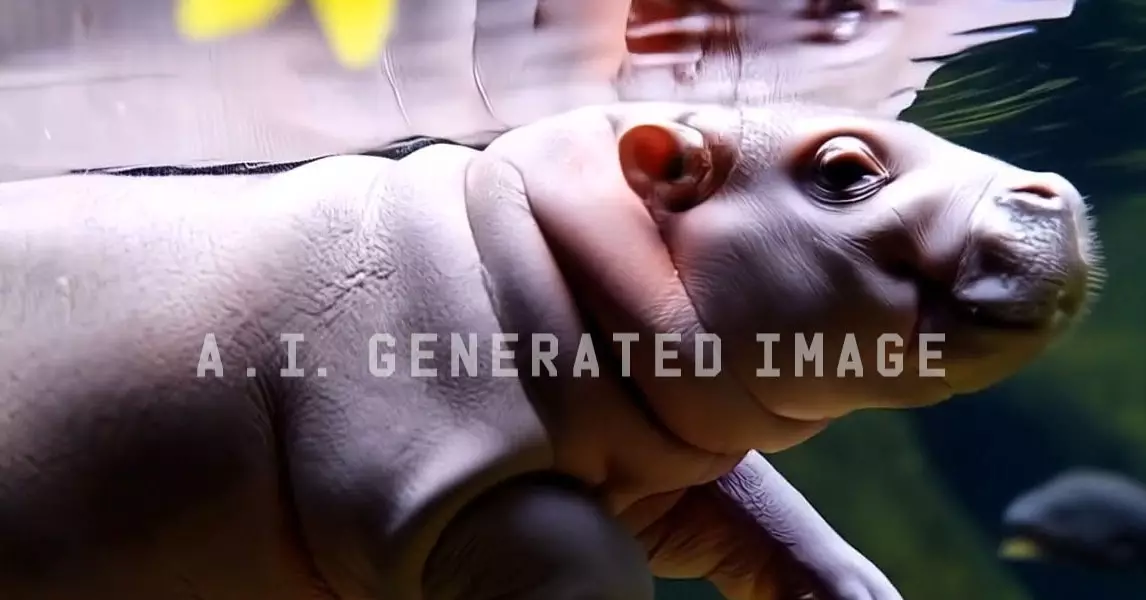Meta, a name synonymous with social media innovation, has recently entered the AI-generated media sphere with its new tool, Movie Gen. This model is designed to produce hyper-realistic video and audio clips that showcase its potential to transform digital content creation. During a recent demonstration, Meta introduced brief, visually captivating clips featuring scenarios like a baby hippo delightfully swimming, akin to well-recognized viral content. Although the tool remains inaccessible to the general public, its announcement comes closely after the Meta Connect event, which had already captured attention with the reveal of refreshed hardware and the latest iteration of Meta’s language model, Llama 3.2.
While the competition in AI development is robust, particularly amongst major tech firms, Movie Gen positions itself as a unique contender, moving beyond simple text-to-video transformation to advanced manipulations of existing videos. With this functionality, creators can, for instance, alter the attributes of objects within a scene or apply effects that enhance the narrative. One particular instance during the presentation demonstrated a transformation where a woman in a VR headset was magically reimagined to wear steampunk binoculars instead.
An integral feature of Movie Gen is its synchronized audio production, which elevates the immersive quality of the generated clips. An example revealed an AI character next to a cascading waterfall, where the enchanting sound of splashing water mingled with a melodic symphony. Other samples included the thrill of a sports car roaring around a track and the suspenseful rustle of a snake in a dense jungle, supplemented with evocative soundscapes. This dual capability of generating both video and audio streamlines content creation, promising an enriched user experience.
The specifics of Movie Gen’s architecture indicate its robustness: the video model is built on 30 billion parameters, while the audio counterpart utilizes 13 billion. For context, a higher parameter count typically signifies advanced capabilities; Meta’s Llama 3.1 model, for instance, boasts 405 billion parameters. Notably, Movie Gen can deliver high-definition video clips lasting up to 16 seconds, and Meta claims that it surpasses its competitors regarding overall video quality, though conclusive benchmarks against other models remain to be seen.
The foundation of Movie Gen finds echoes in Meta AI’s earlier features, such as Imagine Me, demonstrated by CEO Mark Zuckerberg, where users could create role-play scenarios using a photo of themselves. The potential of Movie Gen expands this concept into the realm of video, hinting at a version of “ElfYourself” that stands to take digital playfulness to greater heights.
However, the announcement raises questions about the intricacies of the datasets on which Movie Gen has been trained. Meta’s disclosure describes a blend of licensed and publicly available information, but the opaqueness surrounding the selection and usage of training datasets continues to be a point of contention within the AI community. The ethical implications of data scraping cloud the reputations of many generative AI tools, as the exact origins of the content remain closely guarded secrets.
As the public eagerly anticipates the release of Movie Gen, speculation exists regarding its eventual integration into platforms like Facebook, Instagram, and WhatsApp. Such developments could radically shift how users generate and share content, potentially influencing digital marketing and creative industries as well. Comparatively, competitor narratives are also in motion, with Google planning to integrate aspects of its Veo video model with YouTube Shorts next year, reflecting a shared ambition among tech giants to dominate the video generation space.
Interestingly, while smaller startups like Runway and Pika extend their capabilities to allow users the experience of simple AI video manipulation, the approach from established firms like Meta and Google suggests a more polished, mainstream-ready product. As the AI video landscape continues to evolve, the public’s response to these tools will ultimately shape both individual creativity and broader media trends, highlighting the balance between technological advancements and user-centric design.
Meta’s Movie Gen signifies a notable advancement in the realm of AI-generated media, but the road ahead will require careful navigation of ethical practices and competitive landscapes to realize its full potential. As the tech world keeps a close watch, the excitement surrounding it indicates that AI’s role in media creation is only just beginning.

